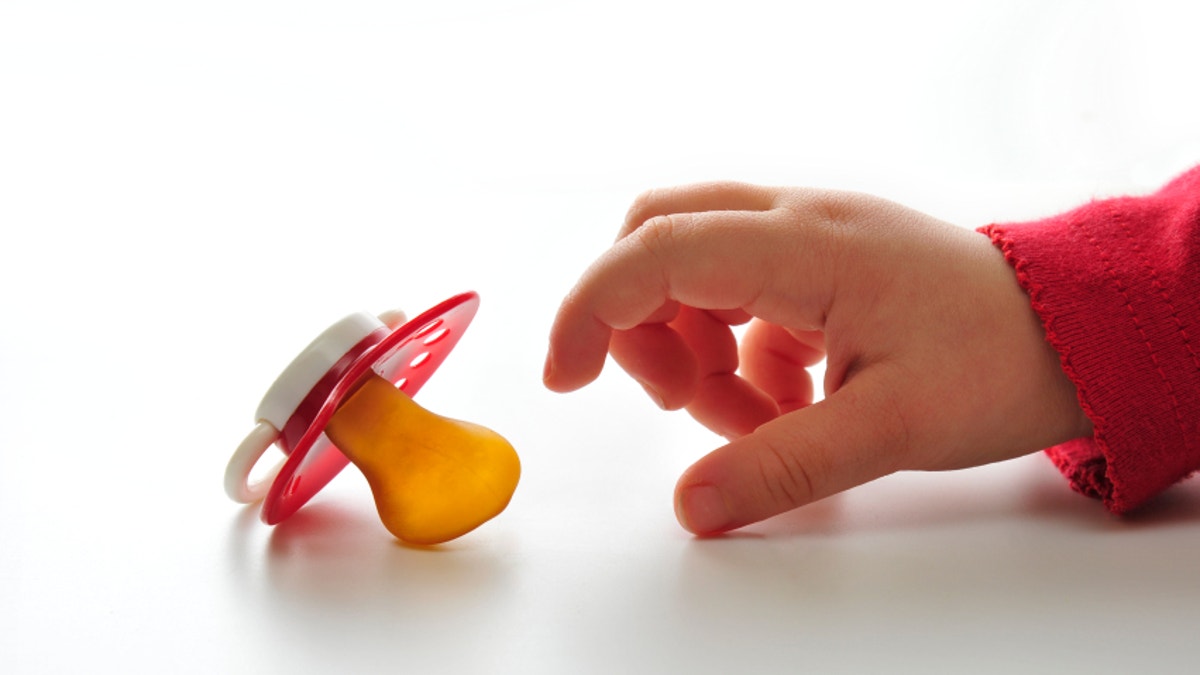
Children's dummy. Child taking the pacifier. ( )
Baby boys who frequently use pacifiers may have an increased risk of developing emotional problems when they are older, Medical News Today reported. The study from the University of Wisconsin-Madison is the first of its kind to find an association between psychological developments and pacifier use, according to the researchers.
The scientists conducted three separate investigations, which all concluded the same results. In one trial, a group of college students were administered a common emotional intelligence test to determine empathy when evaluating other people’s moods. Those who had self-reported using pacifiers frequently as infants had a generally lower score than compared to those who did not.
Another study found that boys at the ages of 6 and 7 who had frequently used pacifiers as infants had a much harder time copying others’ expressions in videos they were asked to watch.
According to Paula Niedenthal, principal author of the study and a professor of psychology at UW-Madison, said pacifier use makes it difficult for young boys to learn how to express themselves.
"By reflecting what another person is doing, you create some part of the feeling yourself,” Niedenthal said. “That's one of the ways we understand what someone is feeling - especially if they seem angry, but they're saying they're not; or they're smiling, but the context isn't right for happiness."
Imitation of others during infancy is an important learning method, according to Medical News Today, to help babies learn to express the emotions they’re feeling. Niedenthal and her colleagues theorized that young boys who often use pacifiers have a more difficult time copying the actions of others – ultimately making it harder for them to learn emotional expression.
The study said this link may not be prevalent in girls, because they often develop their emotional responses much earlier, before pacifier use – or even regardless of it. Niedenthal also noted that parents may want their daughters to be more emotionally sophisticated, so they may be emotionally stimulated in other ways besides imitation.
Parents should be open to the idea of controlling pacifier use in their infants, which is a discussion, Niedenthal said, most parents don’t want to have.
The study was published in Basic and Applied Social Psychology.




















